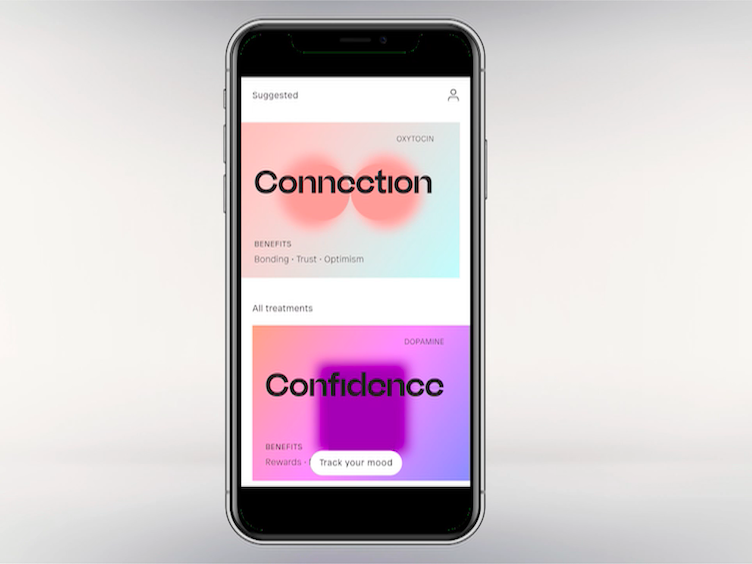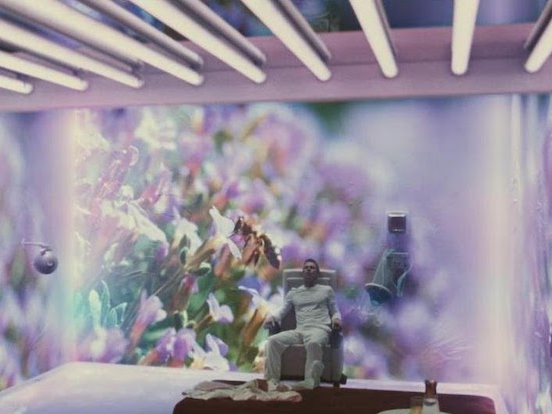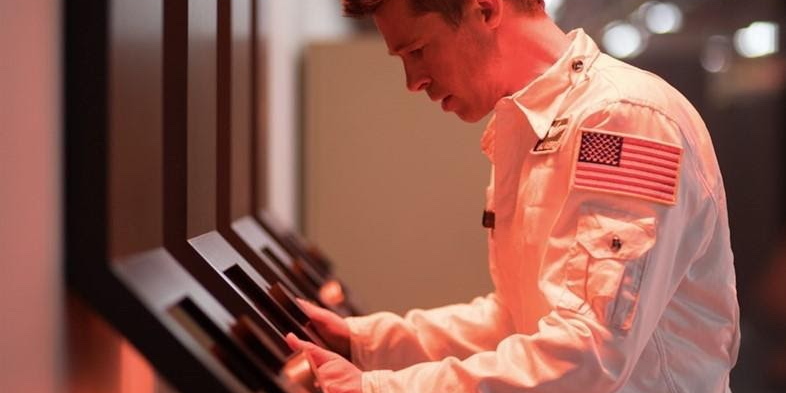- AeBeZe Labs has patented “digital pharmaceuticals” and has a development contract with the US Air Force. These systems could one day be used to monitor troops in space.
- The technology keeps a record of the user’s emotional changes throughout the day, and according to AeBeZe’s patent will eventually be able to mine text messages and facial expressions for emotional content – similar to psychological monitoring in the recent sci-fi movie “Ad Astra.”
- The process of automating counseling may streamline services and decrease costs for the US military but doesn’t necessarily improve the quality of service.
- Visit Business Insider’s homepage for more stories.
A startup that has patented “digital pharmaceuticals” and entered into the second stage of a research-and-development contract with the US Air Force. The goal? To treat troops during space travel.
The company, AeBeZe Labs, is just three years old. In traditional startup fashion, it is based in Palo Alto, California, and has fewer than 10 people. The founder, Michael Moskowitz, is an entrepreneur who previously held positions at eBay and IDEO.
The company’s app, Moodrise, provides a glimpse into how troops might be monitored for anxiety and depression in space, and the most harmful effects of mental illness staved off. The app uses slideshows of different videos, mined from the internet, to target specific neurotransmitters associated with mood. The app is intuitive to use and the videos well selected but whether it can produce a mood shift is difficult to quantify and likely depends on the user.
The phenomenon of technology addiction is proof that digital images release certain neurotransmitters in our brains. AeBeZe Labs thinks it can leverage this to improve mental health in a low-cost and accessible way. AeBeZe has already developed interfaces for smart watches, home devices, and phones.

The technology keeps a record of the user's emotional changes throughout the day, and, according to AeBeZe's patent, will eventually be able to mine text messages and facial expression - using a built-in-camera - for emotional content. The patent also includes the potential to "push" emotionally coded content to the user throughout the day, which can be easily imagined in outer space.
In the recent film "Ad Astra," the astronaut played by Brad Pitt is continuously subject to psychological monitoring via an AI interface, and uses a "comfort room" filled with screens playing videos designed to improve his mood. The videos include birds flying and bees pollinating flowers, meant to generate calm feelings. On the Moodrise app, the therapy would be described as releasing the GABA neurotransmitter, which reduces the activity of neurons and likely reduces feelings of anxiety and fear.
A new way to cope
The market for direct-to-consumer mental-health technology has proved viable through apps such as Headspace and Calm, but Moskowitz's bet is on providing digital-therapy technology to large organizations interested in institutional health, such as the US military and its newly created Space Force.
The renewal of the Air Force contract shows the military is listening. The first contract with the Air Force was worth $41,094 and the second $749,136. Strategies for improving mental health are desperately desired, and significant investments are being made in digital-health technology. The Department of Veterans Affairs has already begun expanding telehealth, or medical assistance delivered remotely through technology, to improve the quality of service. In fact, Moskowitz was clued into the military applications of this technology in 2016 from a former Air Force officer.
"You don't have cigarette breaks anymore," Moskowitz says. "We need a new way for servicemen and women to cope with stressors of the job."

The process of automating counseling may streamline services and decrease costs for the military but doesn't necessarily improve the quality of service. Currently, the app cannot be qualified as medical therapy, only entertainment, which should raise doubts about how effective it will really be in alleviating the mental health crisis.
The next stage of product development has resulted in a product called Daybreak, that has been developed specifically for the U.S. Air Force. Daybreak is already being used at the 548th Intelligence, Surveillance and Reconnaissance Group (ISRG) located at Beale Air Force base in California. Specifically, it is being used in mood-tracking within the base's SCIFs (Sensitive Compartmented Information Facilities), where the primary operations are conducted.
The 548th IRSG is responsible for mission management, training, and other operations for the Group, which includes processing data from aircraft like U-2 spy planes and the MQ-9 Reaper drone.
The response so far is positive according to Xavier Elliot, program manager at 548 ISR Group Innovation.
The company plans to expand to other Air Force units soon, as well as prepare for commercial use.

